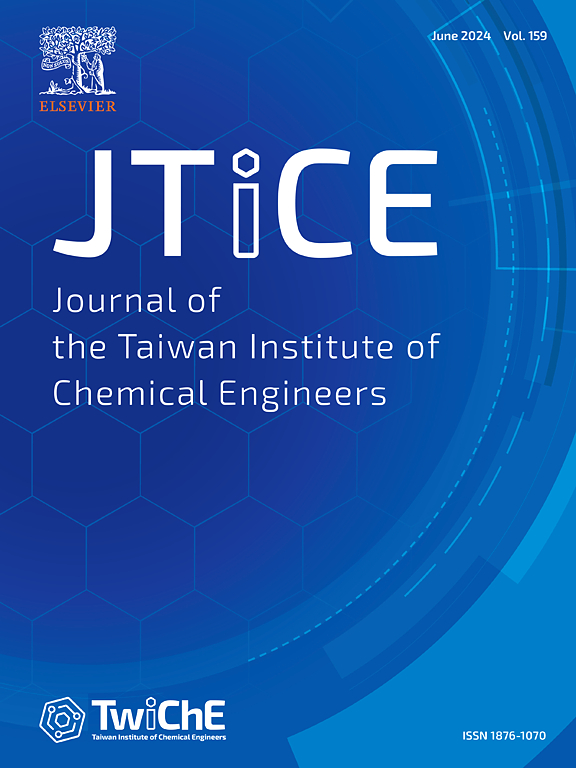Control of melt index in an industrial ethylene-vinyl acetate process using a recurrent neural network soft sensor and multiple virtual control strategies
IF 5.5
3区 工程技术
Q1 ENGINEERING, CHEMICAL
Journal of the Taiwan Institute of Chemical Engineers
Pub Date : 2025-05-02
DOI:10.1016/j.jtice.2025.106154
引用次数: 0
Abstract
This study concerns the development of a gated recurrent units (GRU) artificial neural network (ANN) model and three virtual controllers for controlling melt index (MI) in an industrial ethylene-vinyl acetate (EVA) resin production process. Candidate input variables (features) were selected using the eXtreme Gradient Boosting (XGBoost) method and also operator experience and engineering knowledge. Bayesian optimization was applied to determine the optimal values of hyperparameters. Model performance was quantified using the mean absolute percentage error (MAPE). Step tests were performed to ensure process gain consistency. The predictive model was used to create virtual controllers using three control architectures: virtual PID, fuzzy, and model predictive control. Results show that the model can accurately predict melt index for most EVA grades. Furthermore, all virtual control systems can control the melt index to the setpoint for most grades, completing grade changeover faster and with less off-spec production than manual control.

利用递归神经网络软传感器和多种虚拟控制策略控制工业乙烯-醋酸乙烯工艺的熔体指数
本研究涉及门控循环单元(GRU)人工神经网络(ANN)模型和三个虚拟控制器的开发,用于控制工业乙烯-醋酸乙烯(EVA)树脂生产过程中的熔体指数(MI)。候选输入变量(特征)是通过极端梯度增强(XGBoost)方法以及操作员经验和工程知识来选择的。采用贝叶斯优化方法确定超参数的最优值。使用平均绝对百分比误差(MAPE)对模型性能进行量化。进行了步进测试,以确保工艺增益的一致性。利用预测模型创建虚拟控制器,采用三种控制体系结构:虚拟PID、模糊控制和模型预测控制。结果表明,该模型能准确预测大多数EVA等级的熔体指数。此外,所有虚拟控制系统都可以将大多数等级的熔体指数控制在设定值,与手动控制相比,可以更快地完成等级转换,并减少不合规格的生产。
本文章由计算机程序翻译,如有差异,请以英文原文为准。
求助全文
约1分钟内获得全文
求助全文
来源期刊
CiteScore
9.10
自引率
14.00%
发文量
362
审稿时长
35 days
期刊介绍:
Journal of the Taiwan Institute of Chemical Engineers (formerly known as Journal of the Chinese Institute of Chemical Engineers) publishes original works, from fundamental principles to practical applications, in the broad field of chemical engineering with special focus on three aspects: Chemical and Biomolecular Science and Technology, Energy and Environmental Science and Technology, and Materials Science and Technology. Authors should choose for their manuscript an appropriate aspect section and a few related classifications when submitting to the journal online.

 求助内容:
求助内容: 应助结果提醒方式:
应助结果提醒方式:


